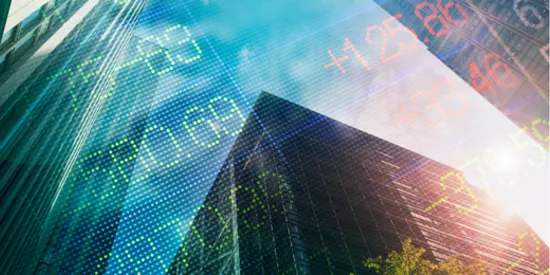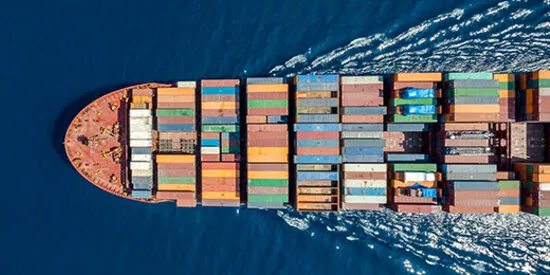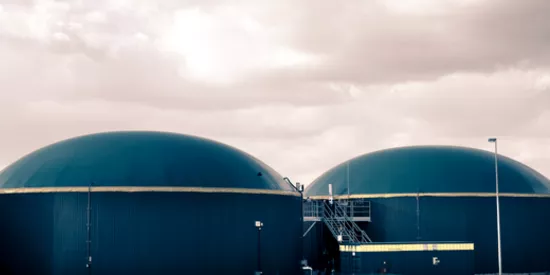
On the journey towards sustainability
The onward march of sustainability as a key element in corporate thinking and planning continues, accelerated by the coronavirus pandemic.
I am delighted to have this opportunity to share my thoughts on this increasingly important subject, the key messages of which even the greatest heroes of classical and modern literature might struggle to communicate.
Even to industry specialists, the journey might at times feel as bewildering as James Joyce’s gargantuan Ulysses rather than Homer’s more straightforward Odyssey.
All the leading economic players are clearly embarked upon an incredibly strong wave towards sustainable growth. Individuals - in particular the younger generation - along with institutional investors, state governments, non-governmental organisations and supranational institutions, are clearly pushing for a move towards a growth strategy which preserves the environment and reducessocial dislocation. Ambition is key. The higher we aim, the more we are likely to achieve.
I believe that we have reached a point of no return on the journey that moves us from polluting the planet to cleaning it. For a bank, sustainable finance is no longer just a virtue-signalling additional option to have in the corporate toolbox. It is a core part of a broader purpose, one to which Societe Generale has made an explicit commitment through a collective review exercise.
Societe Generale is committed to “building, together with our clients, a better and sustainable future, through responsible and innovative financial solutions”, working to a long-term plan and in our mutual long-term interest, both individual and collective, as set out in our mission statement.
We want to play a part in helping to transform the world, and contribute to a better one, which will be more respectful of the environment, and more inclusive, in economic, social and digital terms.
Defining sustainability
Having said that, the issue is then to define just what sustainable means, and to specify the starting point for the journey towards achieving that more sustainable future. We must also avoid being lured onto the rocks by sirens singing tempting songs of non-sustainability.
In this respect I have three strongly held convictions.
Firstly, sustainability is inherently a long-term issue. Companies and banks cannot simply change their business models overnight: a period of transition is essential.
Secondly, sustainability and profitability cannot be mutually exclusive goals. In the long run, properly managed sustainability will open the way to plenty of opportunities for profitable business.
Thirdly, responsibility. The banking sector plays a central role in economic development and banks are major employers in many countries. This confers a particular responsibility upon the industry.
Strengthening greener growth
Being at the center of financing, banks have a clear role to play in the push for greener growth, for growth that respects the resources of the planet. It must be done progressively, but we also need to be ambitious. In this respect, Societe Generale has taken a clear decision to stop the financing of coal in developed countries by 2030 and is committed to raise more than €120bn in the energy transition between 2019 and 2023
The bank is fully in line with that overarching goal so far. In trade finance, for instance, a good deal of work is being done to develop green guarantee business. The list of deals executed in 2020 includes, for example, a green guarantee facility for Elecnor, allowing the Spanish group to use it for eligible green projects that benefit the environment and are socially responsible.
The centrality of diversity
Diversity in the human resources area does not mean only that equality of opportunity in remuneration and in an individual’s career development is guaranteed.
Promoting diversity means building management teams with a mix of experiences, a mix of cultures, a mix of vision, and a mix of cultural and social sensitivities, in order to better understand the evolution of our businesses and take better decisions. I strongly believe that any company will be better if its management considers differences as an opportunity to be embraced, rather than as an obstacle to be negotiated.
Towards social and economic inclusion
As Charles Baudelaire demonstrated with Les Fleurs du Mal, good things can emerge from bad, as I believe we shall see with the coronavirus pandemic. In my view, crises do not change underlying trends, but amplify and accelerate them. Covid-19 will be no different. I feel a strong sense of optimism about the future, for society, for the economy, for the planet.
It is crucial that banks do their utmost to help clients to overcome the crisis and offer them advice and financial solutions to improve their future resilience.
Here, also, I believe it is necessary to find a balanced way, assisting the many economies, SMEs and vulnerable industry sectors that find themselves in unexpectedly difficult situations, whilst managing risk carefully. I am proud to be a part of Societe Generale’s ambition for Africa, an illustration of its commitment to the development of the world’s poorest continent. By playing its role in the development of the world’s poorest continent, by achieving a more balanced development of wealth.
In this context, there is a strong argument in favour of prioritising the distribution of Covid-19 vaccines to the poorest parts of the world. That, for some people, would represent a suitably appropriate grand gesture.
Frugality, the new normal?
In the meantime, Societe Generale will continue to strive to demonstrate that modern banking can be a force for good, including at the cutting edge of IT. The banking sector has become highly dependent upon the use of IT, and the digital age will dramatically increase that usage.
As the head of Global Transaction & Payment Services, I supervise teams who generate untold quantities of data that must be stored properly. I appreciate the urgency of developing capabilities that will help maximise the benefit to be derived from new technologies, such as blockchain, that can dramatically improve efficiency and client impact.
But there is no escaping the hard fact that these technologies are very heavy consumers of energy and it is crucial to find ways to become more frugal. In this respect, Societe Generale has drafted a charter for responsible IT, which goes beyond telling colleagues to close doors, switch off lights and be more careful with storing emails. The charter delivers clear principles to live by in the daily consumption of, and investment in, IT.
Returning to a broader view, investors, pensions funds, asset managers and others are all increasing pressure on the financial industry, consciously or unconsciously. Much work lies ahead to help raise client awareness of matters such as their carbon footprint and how to manage it most appropriately.
Sustainability is a journey and I look forward to accompanying current and future clients on that journey, helping them to becomemore balanced and more profitable as well as more sustainable.




